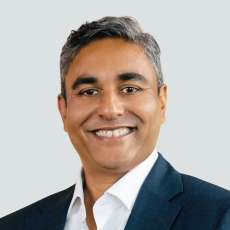Can you give a brief history of TÜV SÜD, highlighting its goals from inception to the present day?
Founded in 1866 during the Industrial Revolution, TÜV SÜD emerged in response to the frequent bursting of pressure equipment. Industry, government, and academics recognized the need for a neutral, unbiased entity to assess the safety of technological advancements. This founding principle of neutrality and independence remains central to our mission today. Whilst pressure vessels are of course still part of our testing portfolio, our scope has expanded enormously to address various technological risks that have emerged over the years to ensure the safety of people and society.
Initially, our primary goal was to ensure safety. Over time, as global supply chains evolved, quality assurance became a major focus. In the 1990s, with the advent of connected technologies, security became another critical area of concern. Over the past 15 years, sustainability has become a central theme, driven not only by increasing and maturing global regulation, but also by societal demands. We guide companies through the myriad of standards to efficiently fulfill reporting obligations and help them find the big levers to create real impact and drive innovation. Despite these evolving priorities, the core of our mission remains the same: to provide unbiased, expert analysis to assess the impact of existing and emerging technologies on society, the environment, and humanity.
How have you observed the trend of sustainability certifications evolving, and what are the key changes in client interest since we last spoke?
The need for certification and standards in sustainability has become even stronger, as only they can provide the necessary credibility needed to counter skepticism. Last year, I emphasized that certification gives the sustainability trend its much-needed credibility. Without it, there's a risk of skepticism and cynicism, similar to what we saw in the early days of quality and security standards. Certification from neutral parties like TÜV SÜD ensures that claims are legitimate and credible, reinforcing trust in sustainability efforts.
The past year has seen an increase in critical voices, especially as sustainability efforts have proliferated at varying levels of adoption. High-profile events, such as COP28 with its participation of fossil fuel organizations, have sparked both debate and criticisms. This highlights the importance of organizations like ours, which can objectively measure, monitor, and report progress. While not every organization will reach net-zero by 2050 or have the most ambitious science-based targets (SBTs), it’s crucial to acknowledge and validate the progress being made. This journey will differ in pace across various sectors and technologies, but the role of certification remains pivotal in providing assurance and fostering confidence in these efforts.
What do you see as the main challenge in achieving a smooth and holistic green transition over the next five years?
The biggest challenge is our ability to generate sufficient clean energy to meet the exponentially growing demand. While progress is being made in areas like deforestation, reforestation, and carbon capture, clean energy production is not developing fast enough.
The appetite for energy is increasing rapidly, driven by technological advancements and industrial needs, however the capacity to produce clean energy through wind, solar, or hydrogen is not keeping pace.
To meet the 1.5°C scenario, installed capacity will need to more than triple by 2030, requiring a significant increase in annual capacity additions.
This imbalance poses a significant hurdle. We are involved in certifying green hydrogen and green ammonia, and ensuring their traceability within supply chains. However, despite these efforts, the sheer demand for energy far outstrips the supply of clean energy. This challenge is further complicated by the high costs associated with producing clean energy, which necessitates substantial investment and innovation to bridge the gap.
How important is energy storage in addressing the increasing demand for energy, and what role does TÜV SÜD play in this?
Energy storage is crucial in making renewable energy viable. Without effective storage solutions, renewable energy remains theoretical because it cannot be reliably used when needed. We are actively working on second-life uses for batteries and solar panels to extend their lifespan and maximize their utility. For example, electric vehicle (EV) batteries, once they degrade to around 70% capacity, may no longer be ideal for mobility but can still be valuable for stationary storage.
Establishing standards for the second-life use of these assets ensures they are safely and efficiently repurposed, reducing the overall carbon footprint. This approach not only prolongs the life of these technologies but also makes them more accessible, particularly in developing regions where the cost of new energy storage assets may be prohibitive. Certification and standardization play a key role in validating these practices, ensuring they are seen as legitimate and beneficial rather than merely waste disposal.
Can you discuss the main challenges and solutions related to EV batteries, and how TÜV SÜD's new testing facility contributes to this field?
The adoption of electromobility hinges on two main factors: performance (range) and safety. Our new battery testing facility in the US, for example, addresses both by rigorously testing and ensuring the safety and performance of EV batteries. We conduct extensive testing, including stress tests that simulate and far beyond real-world requirements, to determine the breaking points of these batteries, thus ensuring they are safe for users.
Economic viability is another significant challenge. The current cost of manufacturing EV batteries, which involves rare earth metals, is high and often requires subsidies to be economically feasible. As technology advances, more efficient, lighter, and longer-lasting batteries will emerge, reducing the reliance on subsidies. Innovations in hydrogen fuel cells and other battery technologies could also drive greater adoption - especially in the field of heavy goods traffic.
Our role is to ensure these technologies are safe and reliable, fostering consumer confidence in EVs. This involves continuous testing and certification, which reassures the public about the safety and performance of these new technologies, thereby supporting broader adoption.
How has public confidence in sustainability efforts changed in recent years, and what role does certification play in this?
Public confidence is paramount, and certification plays a critical role in building and maintaining this trust. Sustainability must move beyond being a niche interest and become mainstream, driven by widespread public and corporate commitment. Certification ensures that sustainability claims are credible and verifiable, countering skepticism and fostering trust.
Over the years, we've seen a positive trend in public confidence as more organizations commit to transparent and accountable sustainability practices. However, for sustainability to truly become ingrained in society, it must be seen as integral to business and daily life, not just a fringe effort. Certification and standards provide the assurance that these efforts are genuine and impactful, encouraging broader acceptance and adoption.
In summary, the green transition is complex and multifaceted, involving technological, economic, and social challenges. TÜV SÜD's role in providing unbiased certification and standards is crucial in ensuring these efforts are credible and effective, thereby fostering public trust and driving the sustainability agenda forward.






